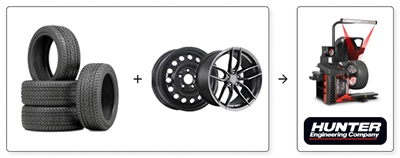Bridgestone wants to commercialize natural rubber from desert shrubs by 2030

Manufacturer Bridgestone Americas is taking another step toward commercializing guayule, a woody shrub that grows in the desert. It is a domestic natural rubber source and a more environmentally sustainable crop in the drought-stricken southwestern United States.
Bridgestone plans to invest an additional $42 million to establish commercial operations, with additional investment and expansion expected around 2030.
The company wants to work with local U.S. farmers and Native American tribes to expand large-scale guayule production capacity on nearly 25,000 farmland.
Bridgestone's goal is to commercially and sustainably produce natural rubber derived from guayule by the decade's end.
Guayule is a desert shrub in the Asteraceae family, native to the north-central Mexican plateau and the Big Bend region of Texas. It has small white flowers and narrow silvery leaves that alternate along the stem. Prehistoric Indians are believed to have obtained rubber by chewing the plant's bark. The modern method is to macerate the shrub mechanically.
The rubber was extracted in Mexico from wild plants in the early 20th century, and vigorous efforts were made to cultivate guayule in the southwestern United States during World War II. Commercial production of guayule rubber ceased after the war ended.
Guayule is a heat tolerant plant that grows in desert environments, especially in the American Southwest. This shrub can be produced with standard growing equipment, saving farmers money.
Guayule requires half as much water as existing crops such as cotton and alfalfa.
From the fields to the racetrack

Bridgestone is using auto racing as a testing ground to demonstrate the performance of a new, sustainable natural rubber derived from guayule, a desert shrub grown in the American Southwest.
Bridgestone continues researching and developing performance with Firestone Firehawk racing tires, which feature sidewalls made from natural rubber derived from guayule. Firestone Firehawk tires were introduced at the Indy 500 Pit Stop Challenge in May before making their competition debut as spare tires at the Big Machine Music City Grand Prix in Nashville on Aug. 7, 2022.

This first-ever use of natural rubber derived from the shrub in racing has demonstrated both the safety and surprising performance of the rubber compound in a performance environment. Bridgestone is pleased with its high-speed, high-pressure testing, with cars travelling up to 200 mph (320 km/h).
Bridgestone believes that rubber extracted from guayule has the potential to have a sustainable economic impact while reducing the energy and other environmental impacts associated with transporting rubber from overseas.
In May 1988, Bridgestone acquired The Firestone Tire & Rubber Company, making Bridgestone one of the largest tire and rubber companies in the world.


